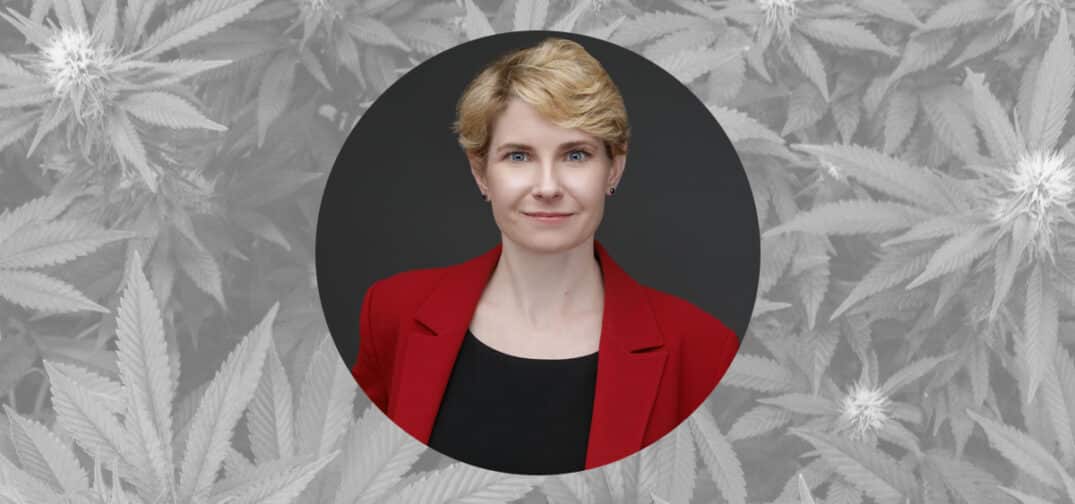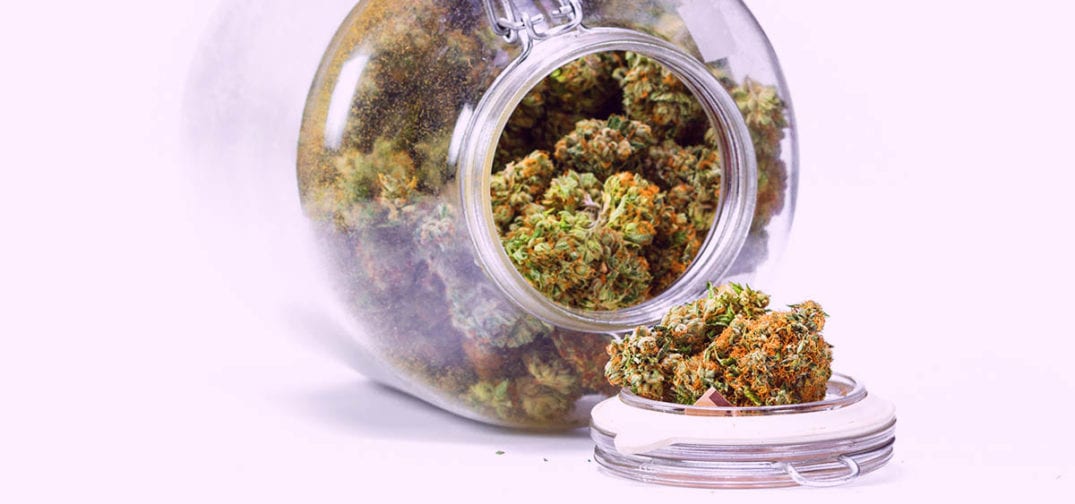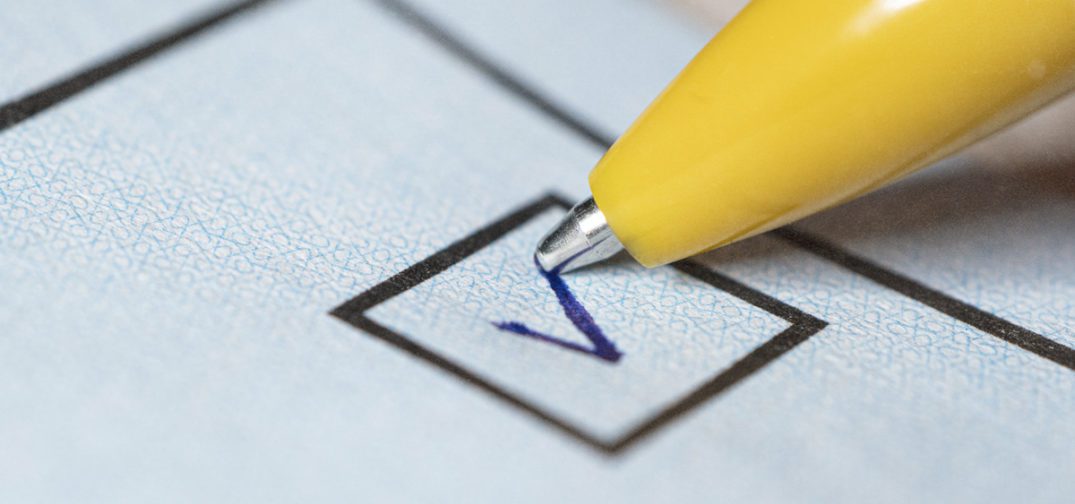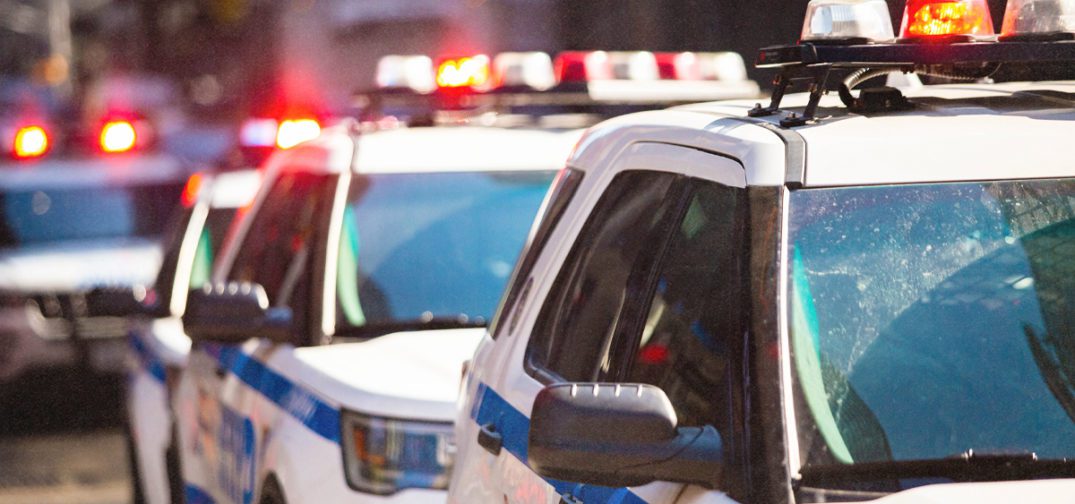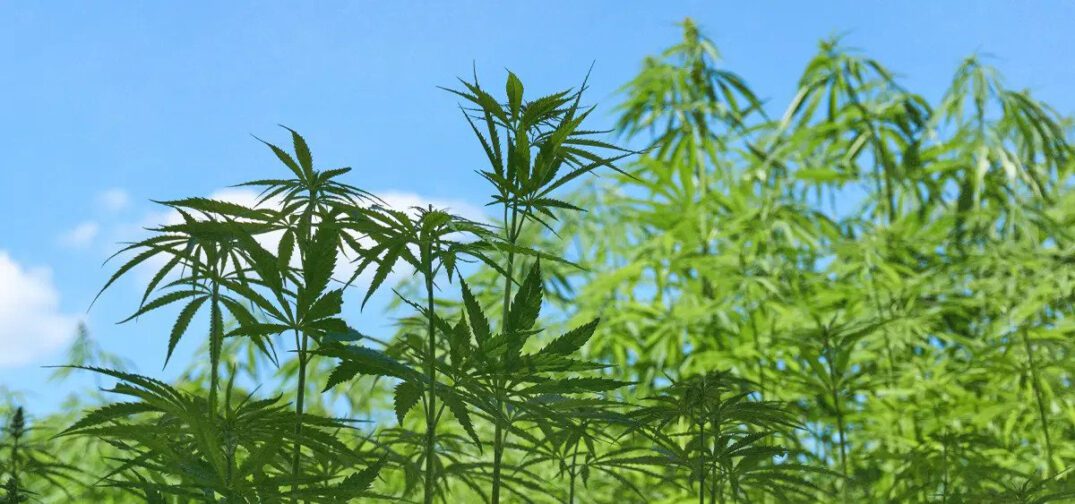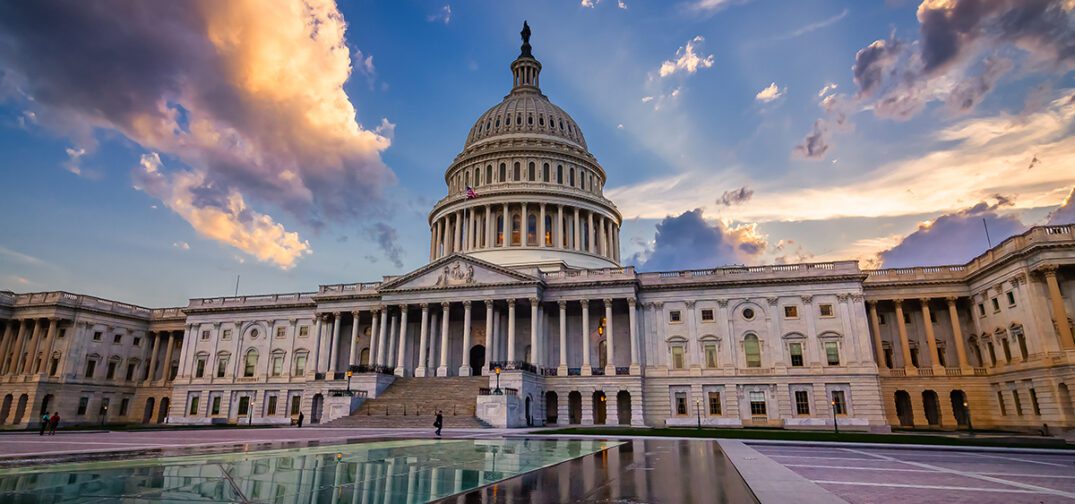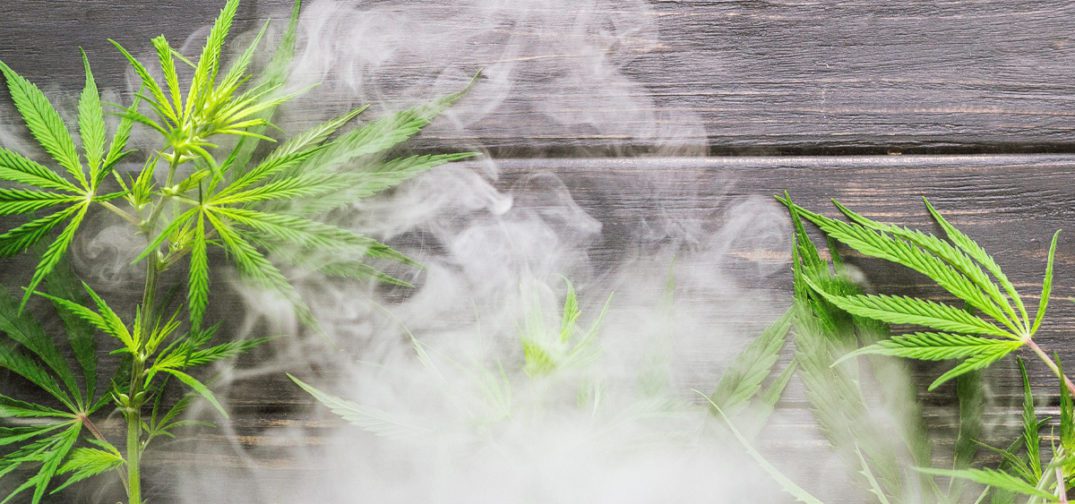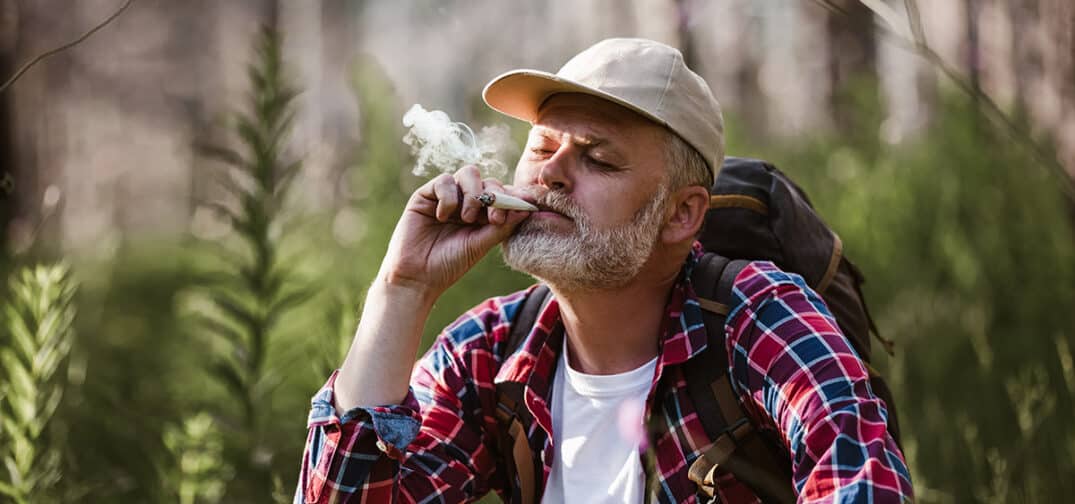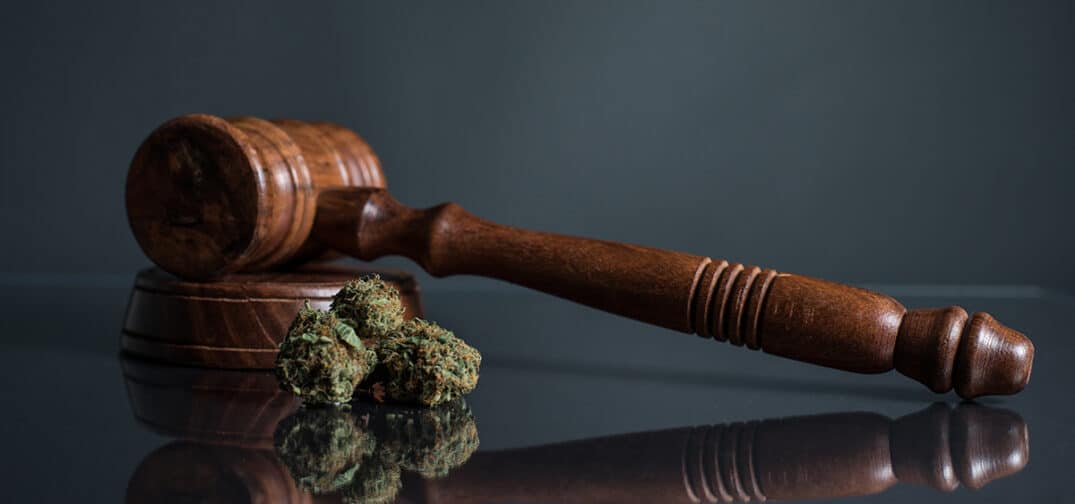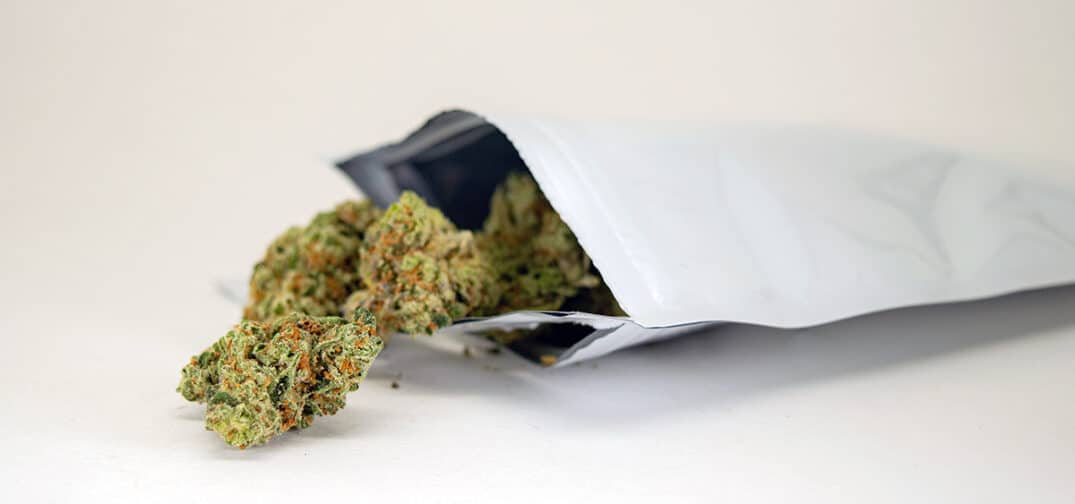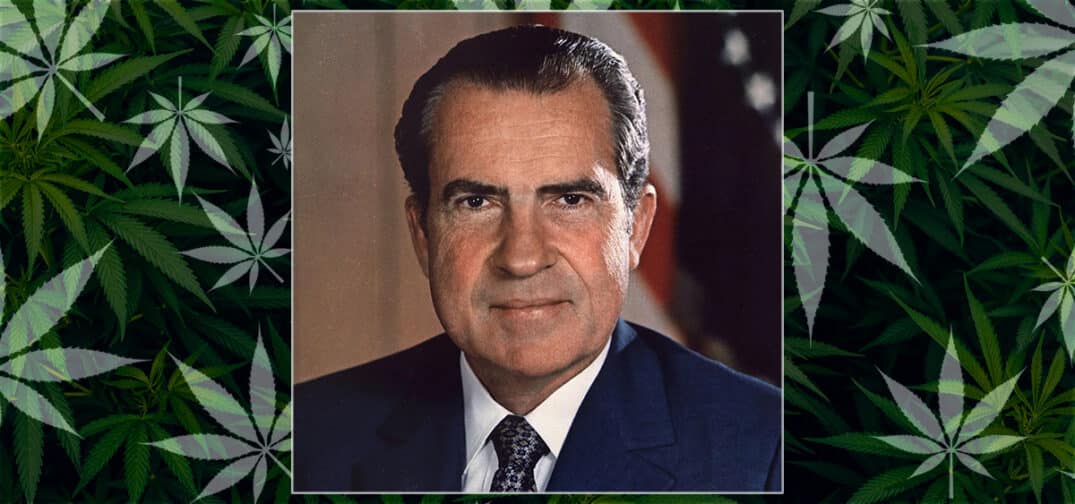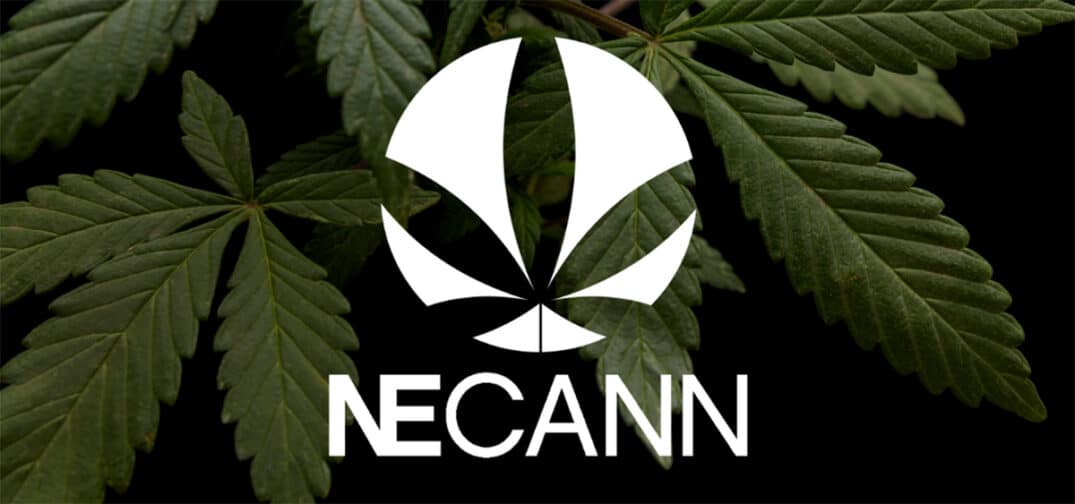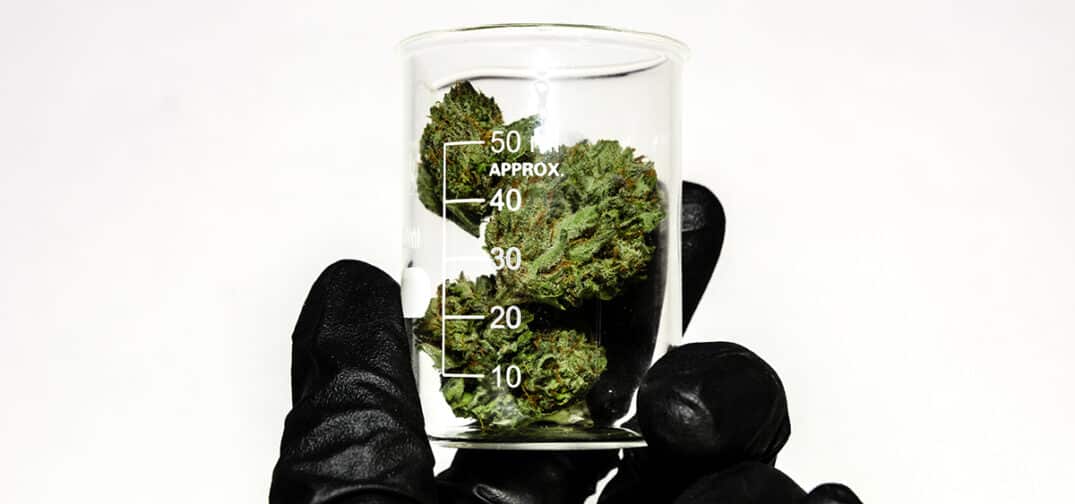In this episode of the Ganjapreneur Podcast, host TG Branfalt sits down with Jessica McElfresh, Chair of the Cannabis Law Institute and board member of the International Cannabis Bar Association, to explore the evolving landscape of cannabis law. Jessica shares her experiences practicing cannabis regulatory law in Southern California since 2010 and provides insights into the critical role attorneys play as the industry grows and federal rescheduling looms on the horizon.
Jessica also discusses the Cannabis Law Institute conference, which took place in Chicago over the summer, where legal experts tackled pressing issues like state and federal cannabis policies, social equity, and the potential impact of rescheduling on taxes, financing, and business operations. Whether you’re a legal professional or cannabis entrepreneur, this episode offers valuable perspectives on how to navigate the complex legal landscape of the cannabis industry and what could be in store as federal policy changes.
Editor’s note: this episode was recorded in June, before the event. To sign up for updates about the 2025 event, visit the International Cannabis Bar Association’s website: incba.org
Listen to the episode using the media player below, find it on your favorite podcast app, or scroll down for the full transcript!
Listen to the episode:
Read the full transcript:
Note: this transcript was auto-generated and may contain errors.
Commercial:
The Ganjapreneur Podcast is made possible by over 500 cannabis industry service providers in Ganjapreneur’s Cannabis Business Index. At some point, every plant touching brand experiences the stigma that many industries still have to toward cannabis going strong. Since 2015, our business index is the most comprehensive and frequently visited directory for cannabis friendly services on the internet, saving you the time and hassle of sifting through uninformed and unwelcoming providers with categories for everything from business financing to extraction equipment to interior designers and public relations. You’ll find every kind of specialist and business service you could ever need. Check out the business index today at ganjapreneur.com/businesses.
TG Branfalt:
Hey there, I’m your host, TG Branfalt, and this is the Ganjapreneur.com podcast where we try to bring you actionable information and normalized cannabis through the stories of ganjapreneurs, activists and industry stakeholders. Today I’m joined by Jessica McElfresh. She’s the chair of the Cannabis Law Institute board member of the International Cannabis Bar Association, whose conference is considered the preeminent annual conference for cannabis law practitioners and takes place next month on July 25th and 26th. How are you doing this afternoon, Jessica?
Jessica McElfresh:
Oh, I’m doing all right, Tim. Thanks for having me. Yeah, we’re very excited about our conference. It’s going to be on those dates you said in July, and it’s going to be at Northwestern Pritzker School of Law in Chicago, Illinois, kind of near the lake, so that’ll be exciting.
TG Branfalt:
Chicago’s a cool city.
Jessica McElfresh:
Yeah, we’re looking forward to it. Yeah, it’ll be our first time in Chicago.
TG Branfalt:
We will talk some more about that. Before we get to the sort of details of the conference, purpose of the conference, that sort of thing, tell me about yourself. How’d you end up sort of in the cannabis law space?
Jessica McElfresh:
Oh, wow. Well, I have been practicing what I would call now cannabis regulatory law in Southern California, primarily San Diego County since roughly 2010. So we are somehow heading up on nearly 15 years, which is kind of crazy in terms of why, well, it was there. I had graduated during the great Recession and I had always thought the cannabis should be legal, and I just increasingly thought the whole broader drug war and drug policy in this country was a farce, and I thought it would be an interesting thing to work on. So that’s the really short version.
TG Branfalt:
So did you work in the sort of early California medical cannabis sort of industry
Jessica McElfresh:
Mass? Yes, I did.
TG Branfalt:
And what did you do that during that period of time?
Jessica McElfresh:
Well, let’s see. I’d say 2010 was a really interesting time to get into it, especially when you look back now, because back in 2010, there was this sense in California that an appellate court was going to rule that cities and counties had to permit medical cannabis collectives to have storefronts in some form exactly how that would work. We weren’t quite sure. That turned out to not come true, but that was interesting to me. One, because I felt that the way the laws worked, which were an exception to criminal laws, which is just not a great way to regulate an industry, was a mess, really hurt a lot of people. It didn’t protect as many people as we had hoped. I also had a bit of a background in land use and permitting, and I could sort of see, because just how we do things in Southern California, sort of where that was going to be going.
And I thought, well, this is an interesting way to work on something that’s of interest to me that I think may have a positive influence on people, and had some combination of areas of law I had some experience or familiarity with. So that was why I was attractive and what I worked on. As I said, that sort of turned into helping people try to operate their collectives of various shapes and sizes, lawfully watching laws. It was changing. I lived through the federal reversal and policy in 2011, which was something else, and eventually we started to come out the other side and the city of San Diego around 20 14, 20 15. We finally got zoning regulations passed. I represented some of the very first permitted storefronts in the city of San Diego, which were medical marijuana consumer cooperatives at that time, and eventually we got two state licensing, and it’s just sort of proceeded from there. That’s the nice version.
TG Branfalt:
So it seems to me, and a lot of the attorneys that I’ve spoken to, they have experience and expertise in various parts of the law that they then apply to the cannabis industry. Is that what you’ve seen during your tenure?
Jessica McElfresh:
Yes and no. I’m of the school, or let me put it this way, I’d say that was honestly even true of what I was doing back at the time. I had familiarity with land use permitting, and I had familiarity with criminal defense. It was an odd moment in time where knowing both those things were very useful simultaneously. So it was interesting, and of course, every lawyer learns on the job in the moment with every client assuming they’re doing their job right. But yes, I’d say that’s true. I would also say it’s my advice always has been when say law students have reached out, oh, I really want to be a canvas lawyer. It’s like, well, that can mean a lot of things and that’s great, but what you’re really saying to me is you want to have an area of law or something that you have an in or you’ve worked in that then you want to bring a cannabis aspect to your practice, and that might become your entire practice. It may become a portion of it. It’s good either way. But yeah, that’s somewhat my standard advice. I’d say back when I started, it was a little more, there were only so many of us who were working in the space or willing to even talk to the clients. So it was a little different back then. It was more predicated on a willingness, but I always felt that to be successful in it, yes, you needed to bring something other than simply a willingness to work in the area.
TG Branfalt:
So it does bring me to my next question. It’s going to be the same question that law students have asked you. What is a cannabis attorney and how has that role changed in the wake of broad legalization in the United States?
Jessica McElfresh:
Well, the good news is that it’s changed in a way where there’s a lot more lawyers working in it, and there’s a lot more opportunity for lawyers and clients have a much greater need for a much wider variety of legal services. For example, back when I started, there really were only so many ways you could possibly set yourself up or set your collective up legally in terms of formation. Now how you operated it and how that worked was a bit of a game of whack-a-mole and hard to define. But as one colleague said to me recently, who’d been in it back then, like, well, it was simple. You basically had about two entity structures that you could choose from. That was it, and a lot of it didn’t go beyond that. Obviously today, there’s significantly greater need for more expertise in how you’re going to structure a business, how you’re going to do funding.
We’re getting more and more into what is and is not a securities issue. That’s just a basic example of something that’s changed, but we’ve also experienced a huge explosion and in work for intellectual property attorneys. We deal far more now with day-to-Day employment attorneys, assisting clients. I mean, there’s just so many examples, but I’d still say my advice to law students hasn’t changed that much. It’s not. It can a general practice to help clients with their various needs and help them at times also get connected with appropriate experts in law. But honestly, the best thing you can do for yourself and for your clients is to be able to offer them some area of law that you have some expertise or experience or want to develop some expertise or experience in and bring cannabis into your practice accordingly. But to be candid, other than wills and trusts, I think we’ve found an application for nearly everything at this point.
TG Branfalt:
So what is featured at the Cannabis Law Institute conference?
Jessica McElfresh:
Well, it’s going to be a two day event on our first day. It’s what we call our plenary day, which is a fancy of saying the sessions tend to be all in one room, and we have some of our more interesting guests that day, such as say, some state regulators or former state regulators are going to be talking about enforcement approaches, and when I say enforcement, I mean when and if it is appropriate to use more punitive measures. How are they effective? Do they work at all? Some of those sorts of questions. We’re also going to have an overview of the current international development and how possibly us and Canadian companies can expand overseas and what that looks like in terms of how does it work, and also how some international countries are dealing with some issues that we may wind up dealing with here in the next several years, such as import export issues such as that.
We’re also going to have a panel about meeting the cannabis press where we’re going to have various journalists who work on cannabis stories, talking about what is significant to them, and also offering our attendees some information about useful ways to possibly get featured or quoted or what’s of use to them. On day two. That is going to be an all continuing legal education credit for attorneys day. We run a grand total of 12 sessions through that day. We have two tracks running simultaneously in the morning, we’re going to have a track I’m calling the classics, which is going to focus on the current state of medical cannabis access and how some of those laws are changing, particularly in light of rescheduling some of our new laws regarding employment discrimination, which I jokingly refer to as employment protections for normal people, meaning people in normal garden variety, mainstream jobs as opposed to not employment issues within cannabis industry, but normal people, I jokingly refer to ’em.
We’re also going to have a panel in that morning talking about what is going to happen post rescheduling, what’s going to be changing at the federal level, how may investment opportunities be changing the fate of the dormant commerce clause in terms of influencing cannabis policy and licensing and what that may look like. And then in the afternoon, we’re going to have a panel. We’re going to have two tracks again, one is going to sort of be focused on state and local expansion. We’re going to be talking about D eight and D nine cannabinoid litigation. We’re going to have a panel that’s going to talk about possible visions for states that may be coming online and what maybe they want to do differently or learn from, well-intentioned, but less successful experiments we’ve had recently in some states. And then we’re going to have a panel two focusing on issues for attorneys. We’re going to have one on the Corporate Transparency Act and how that’s going to affect people’s practices as well as how to counsel their cannabis clients within it. We’re going to have one on the ethics of attorneys trying to offer services beyond being an attorney, say consultant or real estate broker. It could include your dry cleaner, but that one just doesn’t seem to pose any ethical issues.
That’s just some of the sessions. There’s a few others, but those were some ones I wanted to highlight.
TG Branfalt:
I mean, it sounds incredibly in depth, intense.
Jessica McElfresh:
You can say wonky. It’s okay.
TG Branfalt:
How many people are you expecting to come to this event?
Jessica McElfresh:
Well, it varies, but we are hoping to get, I’d say at least a hundred, maybe more. There must be something very wrong with me wanting to hang out for two days with a hundred lawyers, but I’ll be honest, it’s always one of the highlights of my year professionally. It’s a lot of fun.
TG Branfalt:
So you brought up the elephant in the legal room, federal cannabis rescheduling, which still as we speak hasn’t been fully finalized, but how are attorneys, yourself and those that you’ve spoken to broadly viewing potential federal reforms?
Jessica McElfresh:
I would say that the range of reactions among attorneys pretty much matches the range of reactions in the broader cannabis space. Some people think it’s going to be the greatest thing since sliced bread or the invention of the plant itself. Others think this is going to be never ending gloom and doom and nothing will ever be good again. Some think that we will be taken over by large pharmaceutical companies within two minutes. Others feel it will stop any further social justice momentum and further change. And then there are people in the middle who think, and this probably includes me, that it’s significant and overall in my family, you don’t really look at gift forces in the mouth, but it’s really more about what happens after this and where we go fit from here, and for example, not letting it stop movement for more social justice change, not necessarily getting caught up in losing what momentum we are having.
How do we, for example, use this to make the world better for medical cannabis patients as opposed to having it more, maybe even limit their access in some states and limiting them to simply eventual products that may come on the market that are actual schedule three? To me, it’s more about what do we do with it then? It’s not a cure all by itself. In fact, initially it was sort of interesting to list of people all the things that it was not going to automatically do all by itself. That made me real popular for a few weeks because a lot of people wanted to celebrate. I’m like, no, it’s not going to change all of our federal criminal laws. No, it does not necessarily mean your insurance is going to reimburse you for your medical canvas. No, it doesn’t necessarily mean banks are going to start giving you regular loans. Like, no, I’m sorry. It doesn’t automatically mean these things, but look, let’s not, let’s not throw too much cold water on the most significant change in federal cannabis policy since, oh, I don’t know. It was put in schedule one in the first place. A lot of things happened after that, some of which were envisioned when it happened. Some say it was only supposed to be a placeholder and it just went south. Maybe we need to look at this the same way. It’s about what we do with it and where we take it next.
TG Branfalt:
So do you think of all of the sort of things that federal scheduling could impact, do you think it’s going to have the biggest impact on financing on mergers and acquisitions on two 80 e on social equity?
Jessica McElfresh:
Well, this is speculation, but if I were inclined to rank, probably the biggest change is going to be on two a DE. It does appear, though I always am the biggest, the devil’s in the details person. It does appear that two 80 E only applies to drug trafficking of a substance that is schedule one or Schedule two. If conceivably this moves to schedule three, though we do not know at this point exactly how long rulemaking will take at the federal level, which I usually describe rulemaking because we experience it at the state level as well, is you have an idea. Then the government spends a lot of time figuring out what the rules are going to be. It’s very creatively named Tim, but it takes time and there’s a lot of hearings and there’s a lot of opinions. So we got to get through that, and I know that there is some optimism including by the Biden administration that they will get this done before the election. I would be very pleasantly surprised if that occurred. But I do agree they’re going to make a good faith effort at getting the ball rolling and moving quickly, and that’s excellent. We certainly wouldn’t want this to be announced and then just sit there like some dying house plan on my desk.
But that is going to take us some time, and in the meantime, hopefully, yes, the biggest change probably initially will be two 80 E. With that not being applied anymore, what I don’t know is whether we’re going to wind up, and don’t get me wrong, I mean that would be massive. I mean, if you really want to blow somebody’s mind at a cocktail party who doesn’t know much about cannabis, even people who, it’s really a fascinating thing to talk about because even people who don’t like cannabis, it turns out that they dislike double and triple taxation even more. Sure do. And a lot of consumers don’t like finding out how much of the price they pay at the retail outlet is ultimately in taxes. It’s an interesting thing to talk to the general public about those normal people, but obviously that is going to be a huge change in how much capital businesses have.
It’s going to simplify how their taxes work. It’s going to put them in line to really conduct their tax policy more like normal companies, for lack of a better term, companies that do not deal with this. So the potential to free up a lot of capital and enjoy a normal sense of deductions to not run around. I mean, at times trying to ask, it’s been clarified, but in the early days, trying to figure out what was the cost of good sold expense versus an overhead one. There was a real how many angels can dance on the head of a pin side, except for there was a lot of money involved. So this could be absolutely tremendous financially by itself. As a result of that, yes, a lot of people are expecting we’re going to see a return to investment in cannabis. I’ll be honest, that was kind of already occurring. It was so high for a few years then it went way down, but it was starting to come back on. But this definitely has the potential to turbocharge it. It’s not a directly associated result. It’s not an automatic cause and effect, but it’s probably also going to make banks more comfortable. It’s probably going to make a variety of private lenders and investors feel more comfortable, which hopefully as there’s more opportunity and more competition, we will also stop seeing quite some of the absurd financial costs and conditions associated with it.
TG Branfalt:
Will it have any impact on the fine send rules
Jessica McElfresh:
On the what?
TG Branfalt:
The fine send rules that, oh, the
Jessica McElfresh:
Can send.
Again, this is the classic. It’s not going to happen automatically, but there’s a very good chance that those will also be reexamined and adjusted. But that’s kind of what I mean. This does not automatically make it totally legal for banks to say bank adult use cannabis companies under federal law. It doesn’t, but it may bring them far greater comfort in relying on the current fiend guidelines as something that they can put some stock in as opposed to solely focusing on that paragraph at the end that says, we may really mean this, but we really may not. It could change at any moment and proceed at your own risk, and we think we mean this, but we’re really not sure because we’re lawyers and we have to write these sorts of things and that’s why no one likes us.
TG Branfalt:
How are attorneys preparing prior to this sort of potential federal action? How are you preparing? What are you telling people?
Jessica McElfresh:
Probably a lot of what we’re talking about here, which is one, we’re going to have to see how long this takes and what it ultimately looks like in terms of a topic that’s probably spurring a lot of discussion for preparation would probably have to do with two 80 E. Some people, the great debate right now is, is this hypothetically going to be applied retroactively? I would be quite shocked if that occurred because one, we don’t usually tend to apply changes retroactively that involve giving back estimates range from hundreds of millions to billions of dollars.
TG Branfalt:
Yeah. Rest isn’t that
Jessica McElfresh:
Business. That’s not really the norm. That’s not a cannabis thing. That’s just not the norm. So I’m a little skeptical of that. However, there is I think a far more vibrant debate over whether say for example, it may be reasonable to start calculating and doing your tax return for 2014, or sorry, 2024, excuse me. Apparently I live in a time warp that way. We’re not sure yet, but people are definitely having that debate and it’s definitely made people feel very optimistic about the future and really enjoying a far more normal balance sheet and return. So I’d say that’s probably in terms of preparation, people are really debating when and how and at what time. You mentioned social equity.
I think we’re already, I don’t know that rescheduling is necessarily going to again, have a direct cause and effect on those questions, but we are already seeing a great deal of litigation in federal court based on the idea in one form or another that social equity programs are violating the dormant commerce clause. Sorts of other things. I would expect, again, it’s the classic, no direct, but it will happen. We’re probably going to start seeing people feeling more and more comfortable bringing various claims in federal court predicated on federal law to challenge programs within cannabis. So right now we’re seeing dormant commerce clause, which of course is going to apply not only to a social equity program, but even a residency preference program. There really are at core about that, but we could wind up seeing programs that challenge or alleged discrimination under other theories in federal court in the future. I would be surprised if we didn’t.
TG Branfalt:
So one of the things that I’ve heard from patients and sort of read on the internet on blogs and groups and this sort of thing, is the idea that federal rescheduling could decimate the medical cannabis program basically that states have enacted because schedule three drugs are only allowed to be dispensed by pharmacies. You have to have a license to do that. Is that a founded fear, do you think?
Jessica McElfresh:
Everyone really depends on who you ask. On one hand, it’s a reasonable enough question because yes, that could happen. There could be states that may have said, I’m tremendously sympathetic to people who have illnesses, but I really don’t see any anymore why we have to take on having a medical cannabis program in our state. There’s going to be schedule three drugs brought by reputable pharmaceutical companies and they can finally be sold in a pharmacy. The way I would’ve preferred we could have done cannabis except for everybody told me that wouldn’t work. We could hear those dialogues and discussions, yes, but at the same time, there are others who feel that the products the pharmaceutical companies have brought to market so far that have more been at to et cetera, Epidiolex being example, they haven’t really proven to be the blockbuster runaway successes that they were hoping.
So there’s some thought that this may not be the world’s most attractive business proposition and qualified patients will more enjoy access in other ways. I would point out that this is probably also something where we’ve already had feedback, for example in California from some qualified patients, that the current market serves adult use sales primarily. It’s not really doing enough for them, and I’m not saying that there isn’t some truth to some of those criticisms, but it’s also hard to say that there isn’t access to cannabis in a state that has an adult use program. It’s really more about how do we tweak that program and tweak our laws to continue to make what’s needed available for qualified patients. We can still do that in this post rescheduling world. It’s again, it’s the classic, what are we going to do with it? This can be good, but what are we going to do next?
There is also some hope that this will assist in loosening and promoting more research, which will probably be good for everybody. There’s also some hope that physicians will be a little more comfortable talking about this or dealing with this too, really to know if that’s the case. And we are going to have a panel. These are going to be some of the issues we’re going to talk about during the medical cannabis law panel at the conference. They’re going to be about physicians and questions of insurance coverage and drugs coming to market. I mean, we’re going to be talking about some of this then. So that’s kind of the initial take is it’s really going to be what do we do with it?
TG Branfalt:
So you did mention this sort of potential international implications of these federal reform in the United States, and recently we saw Canopy Growth, a Canadian based cannabis company, complete a merger or a takeover of acreage holdings in the us and a lot of people have sort of, again, I’ve read that this is even though federal scheduling in the US hasn’t happened yet, this is sort of a preparation for looser federal laws. Do you think that we’ll see more transactions like this if the government does reschedule it to three, these international sort of acquisitions?
Jessica McElfresh:
Possibly, possibly not. Three is not an automatic path to straight ahead import, export or anything that might be more business efficient. But again, I think it will certainly, again, it’s about what comes next. It’s a signal that we’re probably going to go in those directions. We don’t know when. We don’t know exactly how, but investors, particularly ones who think they can predict the future, which are all the ones I’ve ever met, they read the signals, the tea leaves, the crystal balls. This is a really big crystal ball, so to speak. It’s a big signal. What it’s going to mean, what that timeline’s going to look like, who knows? But it definitely means a lot, and that is part of why we are expecting a broader infusion of capital period, and also with two 80 E going away, these companies being profitable in a way where you can get a decent return instead of just hoping and thinking this will probably happen sooner rather than later will occur. So we’re going to have to see.
TG Branfalt:
So what are the most pressing challenges that you hear from clients, from cannabis business owners sort of broadly and looking at the sort of next stage of their business?
Jessica McElfresh:
Well, I’m going to be honest. Most of my clients day to day, they’re certainly aware of this. They’re certainly interested in it. They’re certainly above all, I think looking forward to the possibility of a simpler tax return. But most of their day-to-day concerns are more about operating their businesses now, which means how high are the current state and local taxes and when are those possibly going to go down? Am I overregulated and how am I going to pay for that? Or what’s something where maybe I would like the state to do a bit more to assist me and assist consumers or to create this what city or county is going to open up next? I think that there is this luxury enjoyed by some companies that are extremely large where they can spend the majority of their time talking about rescheduling. For most people who are, and then there are people who work there who handle the day to day. Most cannabis companies are handled by people who are still very connected to the day-to-Day, and so they care about this. They do, but they’re honestly just as focused on what, say I’m in California, what the California legislature’s going to do. I bet if you were to take a straw poll of potential licensees in New York, they’re more concerned about the next head of their regulatory agency and what that person may do and how that’s going to go.
It’s great stuff. It’s a day I’ve been waiting to see for a long time, but we still got to pay the mortgage day to day, so to speak. This is a great financial planning tool for my retirement, so to speak. It’s not going to get MasterCard off my butt today.
TG Branfalt:
So how can clients, business owners identify the best attorney to help them navigate opening a cannabis business or expanding their business or a merger and acquisition sort of path?
Jessica McElfresh:
Well, I think that overall, I’ve always tried to live my life for advice on this topic by the idea that not every lawyer is for every client, and to be totally honest, not every client is for every lawyer. Sometimes it’s about a personality fit or a way the two of you work. Some people prefer clients who are very hands off and they do everything for ’em. Other people prefer to more work with their clients day to day and tackle some of the issues together or have that understanding. I had say, my other main pieces of advice are try to talk to a variety of them. Far too many people just hire the first person they meet or the person that their friend is using without really looking for what is out there and who may be the best fit for them. The other idea that there is only one attorney who’s going to do everything for you, there is no other business in the world that approaches things that way. So the cannabis industry should be no exception. I usually have a bad joke, which is one of the happier days of my legal career was when I didn’t have to try to give people employment law advice anymore, but I’m really not joking.
It’s been a tremendous virtue for me and for clients to connect them with people who can help them with other specific needs. Another bad sign for hiring a lawyer is they tell you that all of your ideas are great and everything is achievable, and it’ll be done super quickly because of what that really tells you is they just want that retainer check and they’ll tell you anything to get it, and that’s not a good sign for your future.
TG Branfalt:
Jessica, this has been a really fascinating conversation. It’s the sort of thing I wish that I could attend the conference next month. Where can people find out more about you, your practice, about the conference?
Jessica McElfresh:
Well, if you want to find out about me, you can find out more@wwwmcelfreshlaw.com. Man, if I could do it over. I keep my difficult last name out of this, but I didn’t. So it’s going to be M like Mary, C like cat, E like elephant, L like lamb, F like Frank, R like Rick, E like elephant, S like Sally, H like hat law.com, and yes, I spelled my last name all day. If you want to learn more about the International Cams Bar Association, you can find more about us at our main website, which is going to be IN cba.org, and then you can also find more information about the conference there. It’s the Cannabis Law Institute of 2024. Again, it’s going to be July 25th through 26th this year, and we’re going to be at the Northwestern Pritzker School of Law in Chicago, Illinois, and you can learn all about us there.
We’ve got a variety of pricing programs going up to the event. Our current one’s going to end on June 14th, but there’s always more, and also, we always have a lot of really sweet deals about getting a membership. For example, if you join for not much more than the price of coming to the conference itself, and personally, I think you’d be a fool not to take advantage of that because we have other events. We also always do a day of attorney programming and a nice party in the evening at MJ Biz Con. We’re planning to be back there again in early December at Associations Day in December. We have an entire catalog of CLEs social events throughout the year, an enormously useful listserv, a member directory. There’s just, oh, so much fun and there’s so many great opportunities to get involved and do work too. So if you like to do work and you want to meet more cannabis attorneys, it’s the best place to be.
TG Branfalt:
Jessica, I really, really appreciate you coming on the show, talking through the conference with me, running me through the paces, if you will, on rescheduling. Thank you so, so much for taking the time to be on the show today.
Jessica McElfresh:
Totally. Thanks for having me.
TG Branfalt:
That is Jessica McElfresh. She’s the chair Cannabis Law Institute and a board member of the International Cannabis Bar Association. You can find more episodes of the Ganjapreneur.com podcast and the podcast section of Ganjapreneur.com and wherever you get your podcast. On the Ganjapreneur.com website, you’ll find the latest cannabis news and cannabis jobs updated daily along at transcripts of this podcast. You can also download the Ganjapreneur.com app and iTunes and Google Play. This episode was engineered by Wayward Sound Studio. I’ve been your host, TG Branfalt.
End
